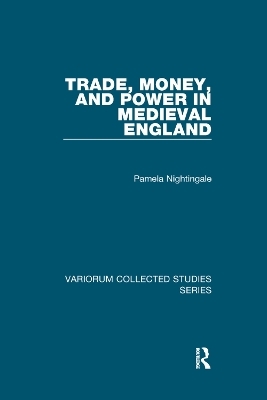
Trade, Money, and Power in Medieval England
Routledge (Verlag)
978-1-138-37520-8 (ISBN)
Pamela Nightingale is a member of the History Faculty at the University of Oxford, UK.
Contents: Introduction; Communication through capital and trade: money and the rise of a market economy in medieval Europe; The ora, the mark, and the mancus: weight-standards and the coinage in 11th-century England (parts 1 & 2); The evolution of weight standards and the creation of new monetary and commercial links in Northern Europe from the 10th century to the 12th century; Some London moneyers, and reflections on the organisation of English Mints in the 11th and 12th centuries; The origin of the Court of Husting and Danish influence on London's development into a capital city; 'The king's profit': trends in English Mint and monetary policy in the 11th and 12th centuries; The London Pepperers' Guild and some 12th-century English trading links with Spain; The lay subsidies and the distribution of wealth in medieval England, 1275-1334; Norwich, London, and the regional integration of Norfolk's economy in the first half of the 14th century; The English parochial clergy as investors and creditors in the first half of the 14th century; Knights and merchants: trade, politics, and the gentry in late medieval England; The growth of London in the medieval English economy; Capitalists, crafts, and constitutional change in late 14th-century London; Money and credit in the economy of late medieval England; Monetary contraction and mercantile credit in later medieval England; England and the European depression of the mid-15th century; Index.
| Erscheinungsdatum | 19.03.2019 |
|---|---|
| Reihe/Serie | Variorum Collected Studies |
| Verlagsort | London |
| Sprache | englisch |
| Maße | 156 x 234 mm |
| Gewicht | 453 g |
| Themenwelt | Geisteswissenschaften ► Geschichte ► Regional- / Ländergeschichte |
| Geschichte ► Teilgebiete der Geschichte ► Wirtschaftsgeschichte | |
| Wirtschaft ► Allgemeines / Lexika | |
| ISBN-10 | 1-138-37520-9 / 1138375209 |
| ISBN-13 | 978-1-138-37520-8 / 9781138375208 |
| Zustand | Neuware |
| Haben Sie eine Frage zum Produkt? |
aus dem Bereich


